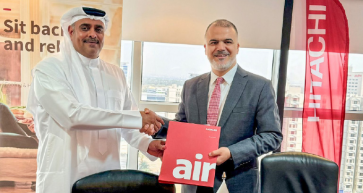
Financial expert Pria Masson Tanwar talks coupling of a different kind.
Every economic system goes through several phases. One where a market is created, where infrastructure is established and demand is assessed. This usually gives way to a phase where more players enter the market. Eventually, this means that there are more suppliers than is suitable for the demand and infrastructure created. Then comes the phase of consolidation. The GCC economy is finally in a phase where some sort of consolidation activity is emerging across sectors.
Consolidation takes the positive form of either mergers or acquisitions or the negative form of businesses shutting down. It’s a sign of a healthy business eco-system, when the core sectors such as banking, logistics, energy, healthcare or education etc, undergo consolidation activity towards a more robust system.
Within the GCC, the past few years have seen several mergers and acquisitions. One of the largest was within the critical marine logistics space wherein DP World acquired Topaz Energy and Marine in a deal worth USD1.08 billion. Within banking, Abu Dhabi Commercial Bank and Union National Bank merged to acquire Al Hilal Bank; Kuwait Finance House and Ahli United Bank Merged and NBB has announced the acquisition of Bahrain Islamic Bank. Within education, GEMS Education KSA and Hassana have completed the acquisition of Ma’arif Education and Training Company – Saudi Arabia’s largest operator of private schools.
These deals are all matters of public news. There will have been a lot more such consolidation activity among smaller, less newsworthy players.
But why is this so significant? Because consolidation means a few critical things. First, it means that while someone has not done as well as expected, there are other players that see potential in that business and believe things can change. So, the company or business is not bad, it just needs a different partner or alliance.
Second, it means a lot of money (liquidity) is unlocked. Companies almost always have value hidden in assets. While, consolidation is to unlock hidden potential, whatever value is paid, the potential is a very real and tangible realisation of that value. And this liquidity, then flows into the economic system in some form.
Third, it means there are a lot of human resources freed up for reallocation – this is not good news at the outset. However, often, severance packages are lucrative enough to create start-ups, to have previous employees exiting to their home countries and to effectively have a reduction in disguised unemployment in the region. In the long run, these are essential components of sustainable growth.
Finally, consolidation almost always means progress and development for the longer term. Any firm that is consolidating will review strategies, assess goals, optimise resources and define a clear way forward. Usually, client engagement, products offered and quality of services will improve – as will technology used. These processes provide work for a host of other service providers. It’s like a butterfly effect that can take over.
What is it that makes a consolidation a reality? It is like what makes relationships exist and work – a need for a partner, common goals, a benefit (in this case a tangible benefit) and a belief that the way forward together is brighter than it is separately. Mergers and acquisitions are marriages within the business world, and it seems like it’s wedding season in the region.
Pria is an Advisor with JEO Management Consultants (http://www.jeomanagement.com). You can follow Pria at her Instagram handle money_cues or know more about her professional experience at http://www.i2d-consulting.com



